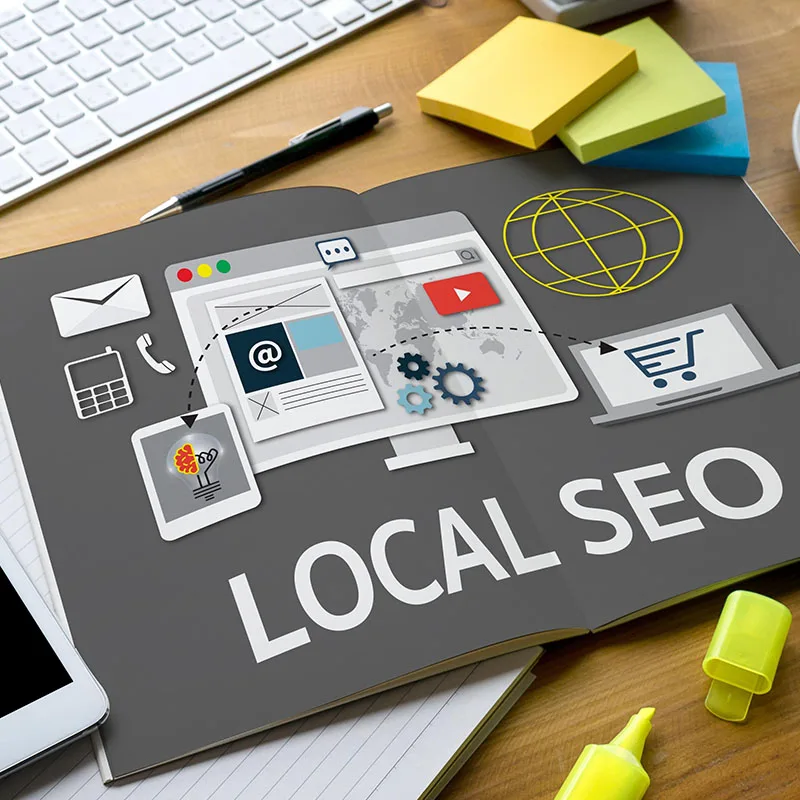SEO is constantly evolving, and small businesses need to keep up to stay visible and competitive online. In 2025, search engines are placing more emphasis on AI, user experience, and mobile-first optimization. If you want to attract more traffic, generate leads, and boost sales, it’s essential to understand the latest trends and implement them effectively.
Here are the top 10 SEO trends every small business should follow in 2025, along with actionable tips to help your website thrive.
1. AI-Powered SEO Optimization
Artificial Intelligence is transforming SEO. From keyword research to content creation and competitor analysis, AI tools can help small businesses optimize faster and smarter. Tools like ChatGPT, Jasper, and Surfer SEO allow you to analyze top-performing content, predict trends, and even generate SEO-friendly copy.
Tip: Use AI to audit your existing pages, identify gaps, and optimize for keywords that matter most to your audience.

2. Mobile-First Indexing & Optimization
Google now predominantly uses mobile-first indexing, meaning the mobile version of your website is the primary version considered for ranking. A site that looks great on desktop but struggles on mobile risks losing valuable traffic.
Tip: Ensure your website is responsive, loads quickly, and has clear navigation for mobile users. Test regularly on multiple devices.
3. Voice Search Optimization
With the rise of voice assistants like Siri, Alexa, and Google Assistant, voice search is becoming a major driver of traffic. Users now ask conversational questions, often longer than typed queries.
Tip: Optimize for long-tail, conversational keywords and add FAQ sections that answer common questions naturally.
4. Core Web Vitals & Page Experience
User experience is no longer optional. Google’s Core Web Vitals—Largest Contentful Paint (LCP), First Input Delay (FID), and Cumulative Layout Shift (CLS)—measure page speed, interactivity, and visual stability. Sites with poor scores risk lower rankings.
Tip: Compress images, enable caching, minimize JavaScript, and use tools like Google PageSpeed Insights to monitor and improve performance.
5. E-A-T (Expertise, Authority, Trustworthiness)
Google prioritizes content from sources it deems trustworthy, especially for YMYL (Your Money Your Life) topics. Demonstrating expertise, authority, and trustworthiness can boost rankings and credibility.
Tip: Include author bios, cite reputable sources, gather backlinks, and provide accurate, helpful content.
6. Featured Snippets & Zero-Click Search
Featured snippets appear at the top of SERPs, offering answers directly to searchers. Optimizing for snippets can increase visibility and traffic, even if users don’t click through.
Tip: Structure content with clear headings, bullet points, and concise answers to common questions to improve your chances of being featured.
7. Video & Visual SEO
Video content is increasingly important for engagement and rankings. Platforms like YouTube and TikTok, along with optimized images, contribute to better SEO performance.
Tip: Include transcripts, optimize titles, descriptions, and alt text, and use schema markup for videos and images.

8. Local SEO & “Near Me” Searches
For small businesses, local search is crucial. Many customers search for services “near me,” and a well-optimized local presence can drive foot traffic and leads.
Tip: Optimize your Google Business Profile, encourage reviews, and create content with local keywords.
9. Structured Data & Schema Markup
Schema helps search engines understand your content, which can lead to rich results like product snippets, events, and FAQs in SERPs.
Tip: Add structured data to key pages, including products, FAQs, and events, to improve click-through rates and visibility.
10. AI-Driven Analytics & Data Insights
AI-powered analytics tools help small businesses monitor performance, predict trends, and make data-driven SEO decisions. These tools can analyze traffic patterns, user behavior, and competitor strategies in real-time.
Tip: Leverage AI insights to continuously refine your SEO strategy and stay ahead of competitors.
Conclusion
SEO in 2025 is more dynamic than ever. By adopting AI tools, optimizing for mobile and voice, improving user experience, and leveraging structured data, small businesses can boost their search visibility, attract more leads, and drive sales.
Ready to implement the latest SEO strategies and grow your small business online? Contact 101 Keys today for a free consultation and start ranking higher in 2025!
Frequently Asked Questions (FAQs)
AI tools can assist with keyword research, content optimization, competitor analysis, and performance tracking, making SEO efforts more efficient and data-driven.
Both have value. SEO builds long-term organic visibility, while Google Ads delivers immediate traffic. A combined strategy often yields the best results.
Structured data helps search engines understand your content and can result in rich snippets, increasing visibility and click-through rates in search results.
Core Web Vitals measure page speed, interactivity, and visual stability. Optimizing them ensures a better user experience and can improve your search engine rankings.
Focus on conversational, long-tail keywords and create FAQ content that answers common customer questions naturally.
Google primarily uses your mobile site for ranking. A mobile-friendly website improves user experience, reduces bounce rates, and boosts search rankings.
Small businesses should prioritize AI-powered SEO, mobile-first optimization, voice search, Core Web Vitals, E-A-T, featured snippets, video & visual SEO, local SEO, structured data, and AI-driven analytics.

